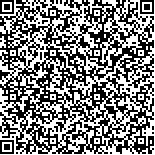| 引用本文: | 吴园园,黄凌斐,罗优优,孙琎,陈洁.中文版Morisky服药依从性评估量表在炎症性肠病患儿中应用的信效度评价[J].中国现代应用药学,2023,40(22):3117-3123. |
| WU Yuanyuan,HUANG Linfei,LUO Youyou,SUN Jin,CHEN Jie.Reliability and Validity of Morisky Medication Adherence Scale for Assessing Medication Adherence in Children with Inflammatory Bowel Disease[J].Chin J Mod Appl Pharm(中国现代应用药学),2023,40(22):3117-3123. |
|
| |
|
|
| 本文已被:浏览 2289次 下载 1043次 |

码上扫一扫! |
|
|
| 中文版Morisky服药依从性评估量表在炎症性肠病患儿中应用的信效度评价 |
|
吴园园1,2, 黄凌斐1,2, 罗优优3, 孙琎1,2, 陈洁3
|
|
1.浙江大学医学院附属儿童医院, 药剂科, 国家儿童健康与疾病临床医学研究中心, 杭州 310052;2.浙江大学临床药学研究中心, 杭州 310058;3.浙江大学医学院附属儿童医院, 消化内科, 国家儿童健康与疾病临床医学研究中心, 杭州 310052
|
|
| 摘要: |
| 目的 探讨中文版Morisky服药依从性量表(包括监护人版和未成年人版)在炎症性肠病患儿中应用的信度与效度,并明确炎症性肠病患儿服药依从性现状与特征。方法 纳入炎症性肠病患儿141例,以中文版Morisky量表为评估工具,以现场发放与回收问卷的形式收集数据,采用克伦巴赫(Cronbach's)a 系数和因子分析分别评价量表内部一致性信度和结构效度,采用Spearman检验评估患儿服药依从性与其疾病严重程度的相关性。结果 监护人版和未成年人版Morisky量表的Cronbach's a系数分别为0.701和0.738;因子分析结果共提取3个公因子,累积方差贡献率分别为67.94%和72.24%;141例患儿的用药依从性评估得分为6.75(4.75,8.0)分,其中,依从性不良、中等与极好的患儿分别为58例(41.1%),39例(27.7%)和44例(31.2%);患儿用药依从性得分与其疾病严重程度呈显著负相关关系(Rs=-0.286,P=0.001)。结论 中文版未成年人版和监护人版Morisky量表均具有较好的信度与效度,可用于评估炎症性肠病患儿的服药依从性。近一半炎症性肠病患儿服药依从性差,忘记服药是影响依从行为的主要障碍,且患儿用药依从性与其疾病严重程度呈显著负相关,临床应予以高度重视。 |
| 关键词: 儿童 炎症性肠病 服药依从性 信度 效度 |
| DOI:10.13748/j.cnki.issn1007-7693.20232567 |
| 分类号:R969.3 |
| 基金项目:浙江省卫生健康科技计划项目(2022494963);浙江省药学会医院药学专项科研资助项目(2021ZYY16);中央高校基本科研业务费专项资金资助项目(S20230004) |
|
| Reliability and Validity of Morisky Medication Adherence Scale for Assessing Medication Adherence in Children with Inflammatory Bowel Disease |
|
WU Yuanyuan1,2, HUANG Linfei1,2, LUO Youyou3, SUN Jin1,2, CHEN Jie3
|
|
1.Children's Hospital, Zhejiang University School of Medicine, Department of Pharmacy, National Clinical Research Center for Child Health, Hangzhou 310052, China;2.Research Center for Clinical Pharmacy, Zhejiang University, Hangzhou 310058, China;3.Children's Hospital, Zhejiang University School of Medicine, Department of Gastroenterology, National Clinical Research Center for Child Health, Hangzhou 310052, China
|
| Abstract: |
| OBJECTIVE To explore the reliability and validity of the Chinese version of the Morisky scale(including guardian version and minor version) applied in assessing medication adherence of children with inflammatory bowel disease, and to clarify the current status and features of medication adherence in children. METHODS The 141 children with inflammatory bowel disease were studied, and collect data through on-site distribution and collection of questionnaires using the Chinese version of the Morisky scale as an evaluation tool. Cronbach's a and factor analysis were used to evaluate the internal consistency and construct validity of scales, respectively, and Spearman test was used to evaluate the correlation between medication adherence and disease severity in children. RESULTS The internal consistency of guardian and minor version of Morisky scale determined by Cronbach's a were 0.701 and 0.738, respectively, while factor analysis indicated that the two scales were all composed of three factors which could explain 67.94% and 72.24% of total variance contribution rate, respectively. The adherence score of the 141 children was 6.75(4.75, 8.0). Among them, 58(41.1%), 39(27.7%) and 44(31.2%) children had poor, moderate and good medication adherence respectively; significant negative correlation was found between children's medication adherence and their disease severity(Rs=-0.286, P=0.001). CONCLUSION Both the guardian and minor version of the Chinese-version Morisky scale exhibit good reliability and validity in evaluating medication adherence in children with inflammatory bowel disease, thus can be applied to evaluate medication adherence in children. Nearly half of the children with inflammatory bowel disease have poor medication adherence, while forgetting to take medicine is the main barrier, and significant negative correlation is found between children's medication adherence and their disease severity, high attention should be given to clinical practice. |
| Key words: children inflammatory bowel disease medication adherence reliability validity |
|
|
|
|
